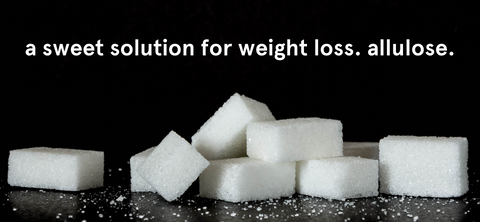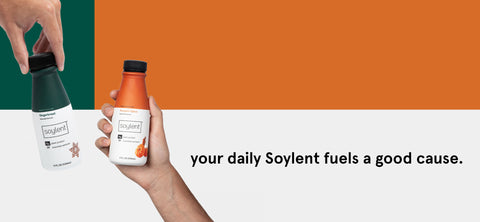
You can find protein powder in the cupboards of many households. Bodybuilders, vegans, and just those who generally would like to consume more protein, rely on protein powder to do so.
Protein powder is a concentrated protein source that comes from animals or plants. For a full breakdown of the importance of protein in your diet, read our post on the Best Protein Sources for Vegans.
If you’ve ever purchased powdered lemonade or iced tea, then you probably get the gist. Rather than mixing your juice powder with water and getting a glass of sugar-packed juice, you can mix protein powder with water and get a protein-packed beverage.
Why Do People Use Protein Powder?
People use protein powders because protein helps their body function properly. Despite protein’s importance, it’s one of the hardest macronutrients to incorporate into your diet.
Protein is most easily found in animal products, but it’s still a pretty inaccessible nutrient even if you are a meat-eater. The average healthy adult should have .8-1.0 g/kg of protein each day; this means that an average woman weighing 150lbs. should aim for 54 to 68 grams of protein each day.
To intake 60 grams of protein, someone would have to eat about ten large eggs or 21 ounces of tofu per day. No matter how enjoyable you find eggs and tofu, those are some pretty grand portions to consume.
Protein powder is an excellent solution to getting in your proper protein intake without the massive plates of food. The two most popular protein powders are made of whey or soy, but what’s the difference?

Whey
Whey is found in dairy and is one of the two major high-quality proteins found naturally in cow's milk. Whey is the liquid that remains after milk has been curdled and strained.

Why Is Whey Used in Protein Powder
Whey is used to make protein powders because it’s considered a complete protein source. Whey protein isolate is about 90% protein with little to no fat and all nine essential amino acids in the right proportions, making it a smart addition to protein powders.
Is Whey Protein Good For You?
As with all protein sources, there are some benefits to whey protein concentrate that you should take advantage of.
Whey helps with strengthening your muscles, tissue, and bones because of its nutrients and amino acids.
Whey protein’s side effects are minimal compared to its benefits, but you should always concern yourself with what you put in your body.
Whey protein is generally safe to consume but is also well recognized as an allergen. Whenever you plan on adding a new protein supplement to your diet, you should consult with your doctor.
Soy
Unlike animal-derived whey, soy is a plant-based protein. Soy protein comes from soybeans. Remember those things you put in a Ziploc bag with a moist paper towel in your kindergarten science class? Those are soybeans.
Soy protein isolate is made from ground soybeans which are then turned into a powder.

Why Is Soy Used in Protein Powder
Soy is used in protein powder because, well, it’s a great source of protein. Soy protein isolate is a complete protein as it contains all of the essential amino acids in the right proportions and has about 23 grams of protein per ounce.
Is Soy Protein Good For You?
The positive effects of soy protein supplements overlap with those of whey, but you should know that soy protein has some additional benefits.
Physical growth and healing: Your muscles, cartilage, skin, and bones depend on protein to retain their strength. As protein helps your cartilage, skin, and bones grow, it can speed up the healing process for your wounds.
Packed with nutrients and amino acids: Not only does whey protein contain all nine essential amino acids when properly proportioned, but it’s also packed with calcium, helping your bones stay strong.
Physique Management: Protein is the macronutrient with the lowest ratio of calories per gram. If you’re seeking out weight loss or muscle mass, soy protein can help.
Help manage cholesterol: Soy foods are naturally cholesterol-free and low in saturated fat. Some animal protein foods are high in saturated fat and cholesterol, increasing your risk of developing cardiovascular disease.
Lactose-free: If you are lactose intolerant or vegan, soy protein is a great option, as no dairy products are involved.
Is One Better Than The Other?
The main differences between whey and soy protein are what they’re made of and how they’re made. Whey is a by-product of cow’s milk, whereas soy comes from soybeans.
Both soy and whey proteins help your body in multiple ways, but the matter of which works best is dependent on your body. If you have a dairy allergy, you should avoid whey protein and stick to vegan protein sources. Your body will give you a good idea of which protein source is better.

Why Does Soylent Prefer Soy Protein?
At Soylent, we know that one protein isolate may not be better than the other in terms of what benefits they bring you, but one most certainly favors the planet.
Plant-based foods are more sustainable in our planet’s future. Producing fewer greenhouse gas emissions, and requiring less energy and water, Soy is the better choice when making sustainable choices.
A study conducted by the French Environment and Energy Management Agency (ADEME) found that compared with diets that include meat, vegetarian and/or vegan diets produced 49.6% fewer greenhouse gas emissions and depended on 26.9% less energy for food production.
All Soylent products are made using plant-based protein. Our mission is to make complete, sustainable nutrition accessible, appealing, and affordable to all; soy protein helps us do just that.
By consuming Soy-based products, you can not only help yourself but our planet and future.







